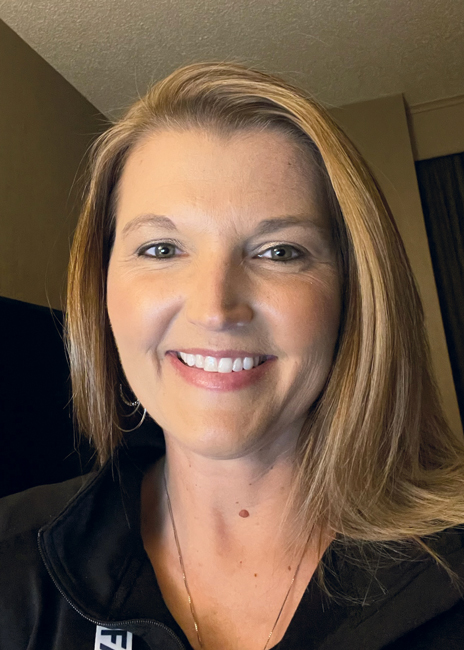Emily Toler, Supplies on the Fly
 As a college student pursuing a business degree, Emily Toler realized early on she had an appetite for success. So she bet on herself and took a job selling car stereos. After five years on the job, Toler knew it was time for a change. One day while reading the newspaper over her lunch break, she saw an ad for a sales position at Restaurant Max, a Georgia foodservice equipment and supplies dealer. “I went down there, filled out an application and gave them my resume and it took off from there,” she recalls.
As a college student pursuing a business degree, Emily Toler realized early on she had an appetite for success. So she bet on herself and took a job selling car stereos. After five years on the job, Toler knew it was time for a change. One day while reading the newspaper over her lunch break, she saw an ad for a sales position at Restaurant Max, a Georgia foodservice equipment and supplies dealer. “I went down there, filled out an application and gave them my resume and it took off from there,” she recalls.
The five years working with Restaurant Max under the leadership of Shawn Bentley proved formative. “That experience molded me into the person I am today,” she says.
Toler was eventually ready for a new challenge and made the jump to Supplies on the Fly, where she serves as a food equipment specialist. Here, Toler discusses how the industry has evolved the past few years and more.
Q: There have been lots of issues with the foodservice industry supply chain over the past couple of years. What’s your approach to resolving some of these challenges?
A: We have a potential chain customer who we are starting to build a relationship with, and they want specific brands of combi ovens and fryers, for example. So, I am giving them the lead times based on what they currently are. In this instance, the customer wants the equipment in October. So, I am working with our team member who coordinates all of this and usually within 72 hours of the customer placing an order, we can tell them what we can do to make their deadline, including what their options look like. Sometimes, that means cancelling the original order and placing a new one for a product that can meet the operator’s timeline.
Q: What changes have you noticed in your customers?
A: The change I have noticed the most is operators are investing more money in their equipment due to the lack of employees. They are purchasing equipment that’s more digital and allows them to do more with fewer employees. In fact, I had one customer ask whether we had access to robot servers because they can’t get enough labor.
Q: You’re known for working well with your supply chain partners. How do you go about developing and maintaining good working relationships with reps, factories, etc.?
A: Start by giving them the time and respect they deserve. For example, say they are at our offices conducting a training session. I need to be there paying attention, taking notes and treating them the right way and not sitting there looking at my phone. They are there to help you.
Q: What’s the most important lesson you have learned?
A: In our industry, it’s important to be honest and you can never overcommunicate. Whether it’s good news or bad news, honesty is always the best policy. My customers know I don’t sugarcoat anything. I give them the information and we take it from there. I prefer to have my conversations on the phone and then follow up with an email. This makes it easier to help review the details with customers and help them make the best choice to meet their needs.
DSR 3-2-1
Emily Toler, Supplies on the Fly, sits down with Jason Wange, Foodservice Powerplant Network, to talk about being named an FE&S DSR of the Month.
Find more episodes of DSR 3-2-1 here.
Foodservice Equipment & Supplies Presents DSR 3-2-1 is sponsored by Salvajor.



